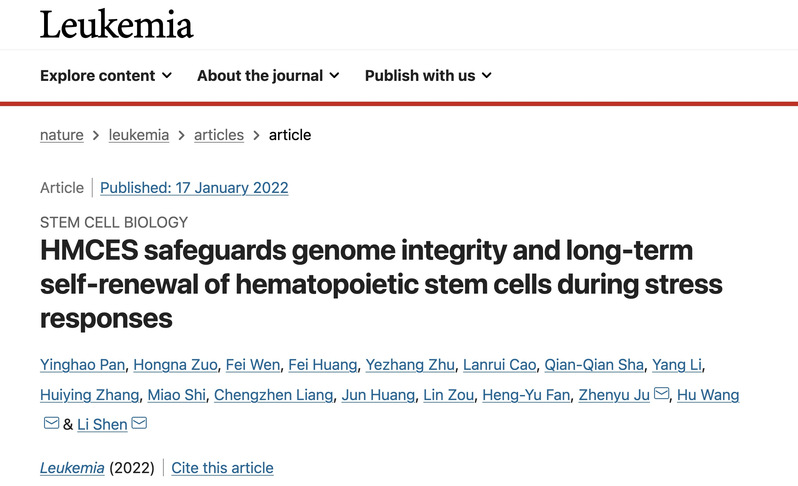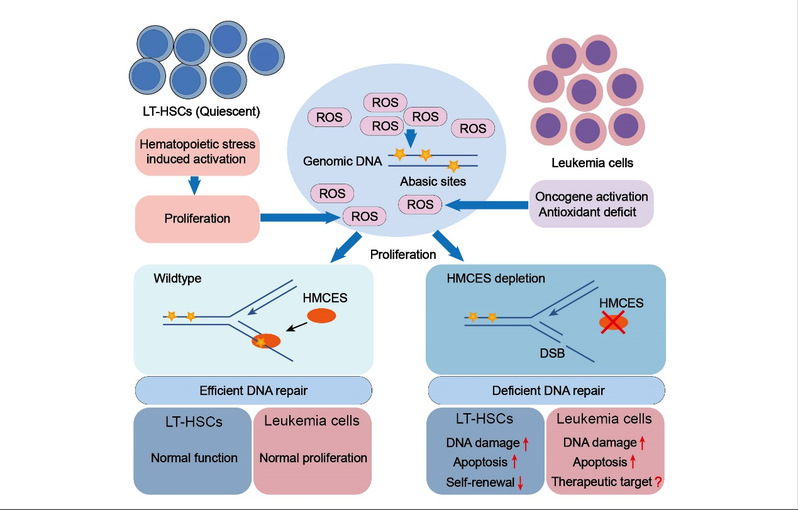Li Shen’s laboratory recently published a research article entitled “HMCES safeguards genome integrity and long-term self-renewal of hematopoietic stem cells during stress responses” in Leukemia on January 18, 2022, reporting the role of HMCES in safeguarding genome integrity and long-term self-renewal of hematopoietic stem cells during stress responses.

Hematopoietic stress drives quiescent hematopoietic stem cells (HSCs) to proliferate, generating reactive oxygen species (ROS) and oxidative DNA damage including abasic sites. Such a coupling between rapid DNA replication and a burst of abasic site formation during HSC stress responses, however, presents a challenge to accurately repair abasic sites located in replication-associated single-stranded DNA. In this study, the authors show that HMCES, a novel shield of abasic sites, plays pivotal roles in overcoming this challenge upon HSC activation. While HMCES was dispensable for steady-state hematopoiesis, Hmces-deficient HSCs exhibited compromised long-term self-renewal capacity in response to hematopoietic stress such as myeloablation and transplantation. Loss of HMCES resulted in accumulation of DNA lesions due to impaired resolution of abasic sites generated by activation-induced ROS in activated HSCs and broad downregulation of DNA damage response and repair pathways. Moreover, Hmces-deficient mice died from bone marrow failure after exposure to sublethal irradiation, which also produces ROS. Notably, dysregulation of HMCES occurs frequently in acute lymphocytic leukemia (ALL) and is associated with poor clinical outcomes. Together, findings in this study not only highlighted HMCES as a novel genome protector in activated HSCs, but also position it as a potential selective target against ALL while sparing normal hematopoiesis.

This work was supported by the National Natural Science Foundation of China, the National Key Research and Development Programs of China, and Zhejiang Provincial Natural Science Foundation of China. Yinghao Pan and Hongna Zuo are the co-first authors of this article.
Link:https://www.nature.com/articles/s41375-021-01499-5



